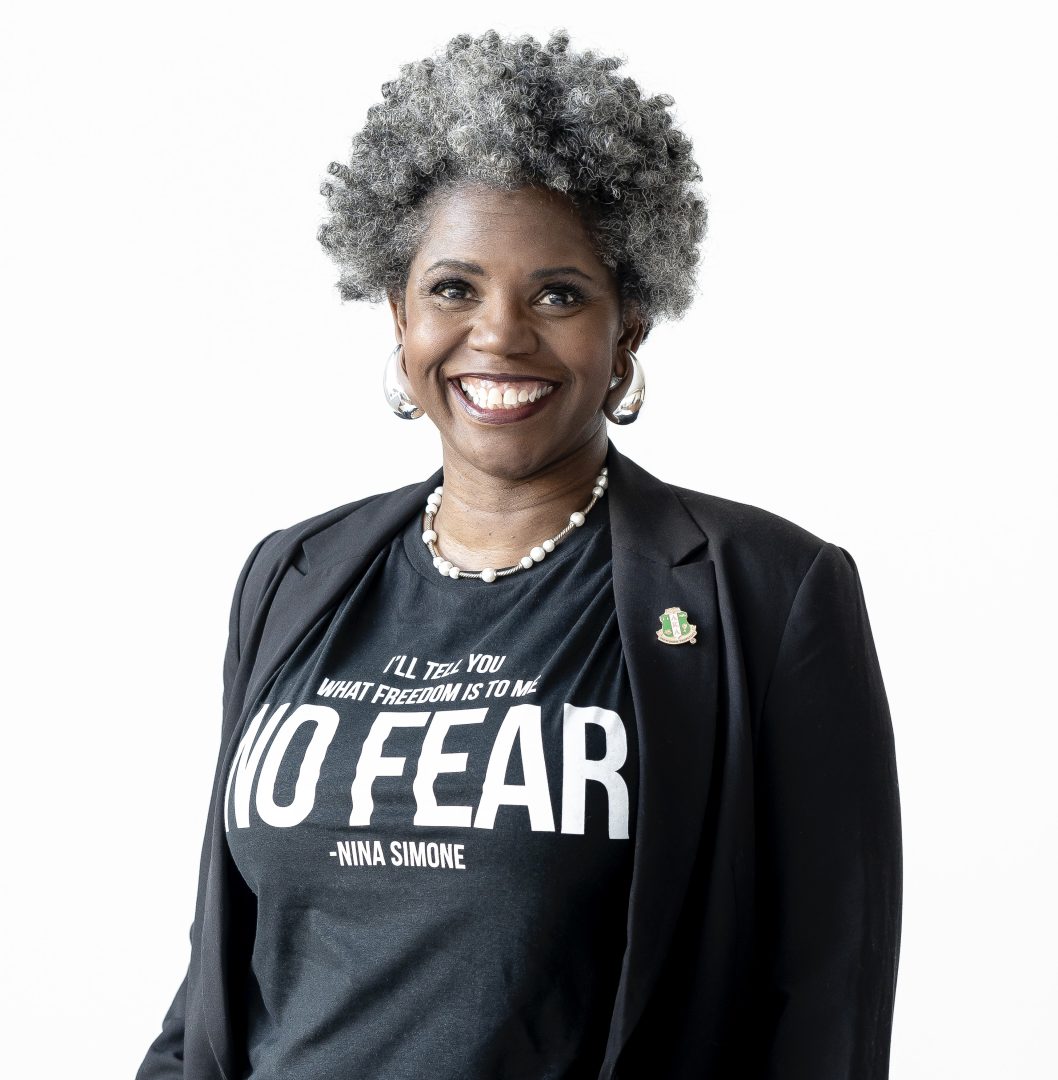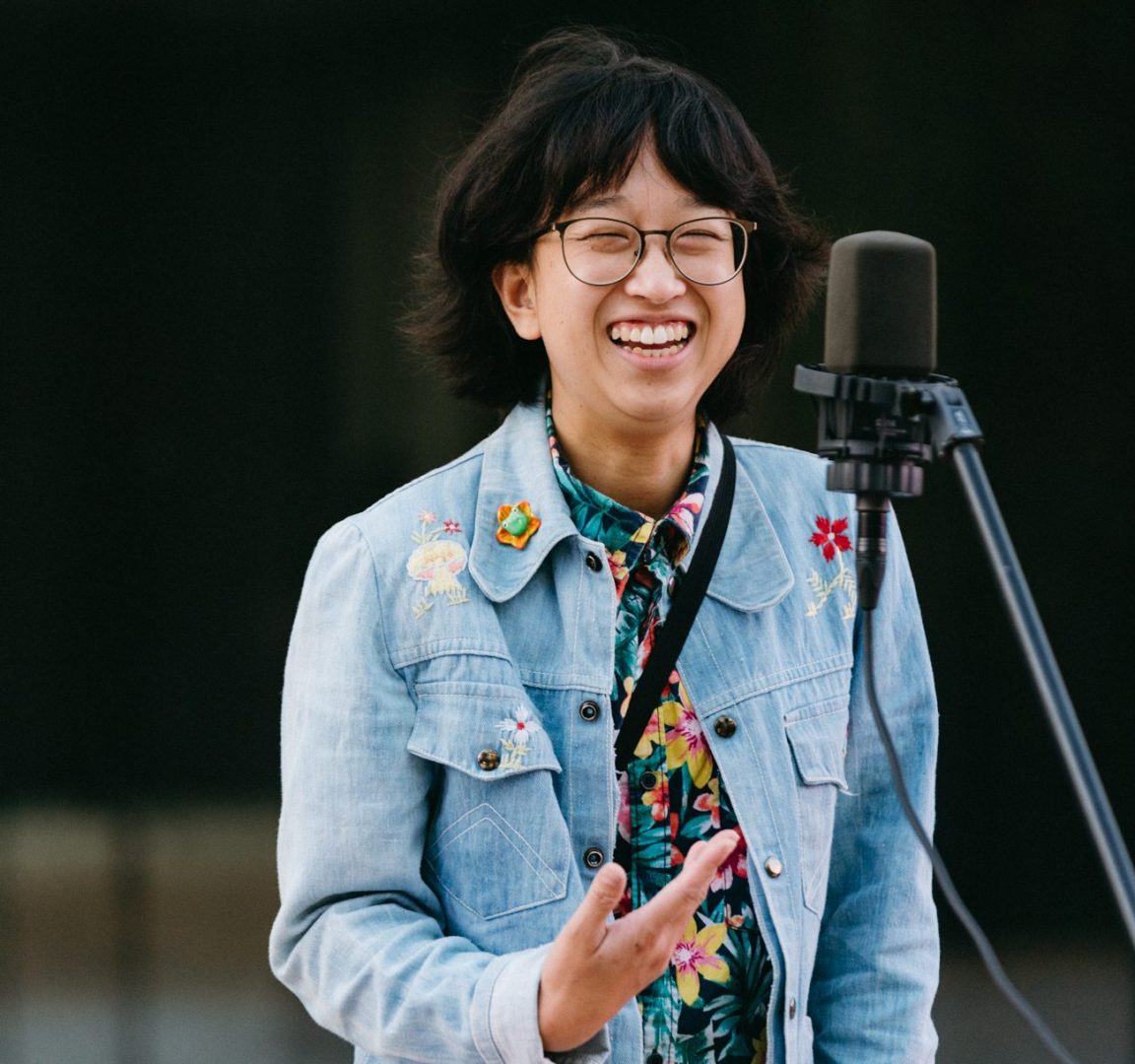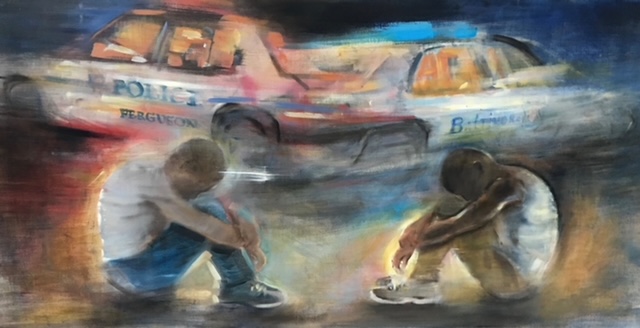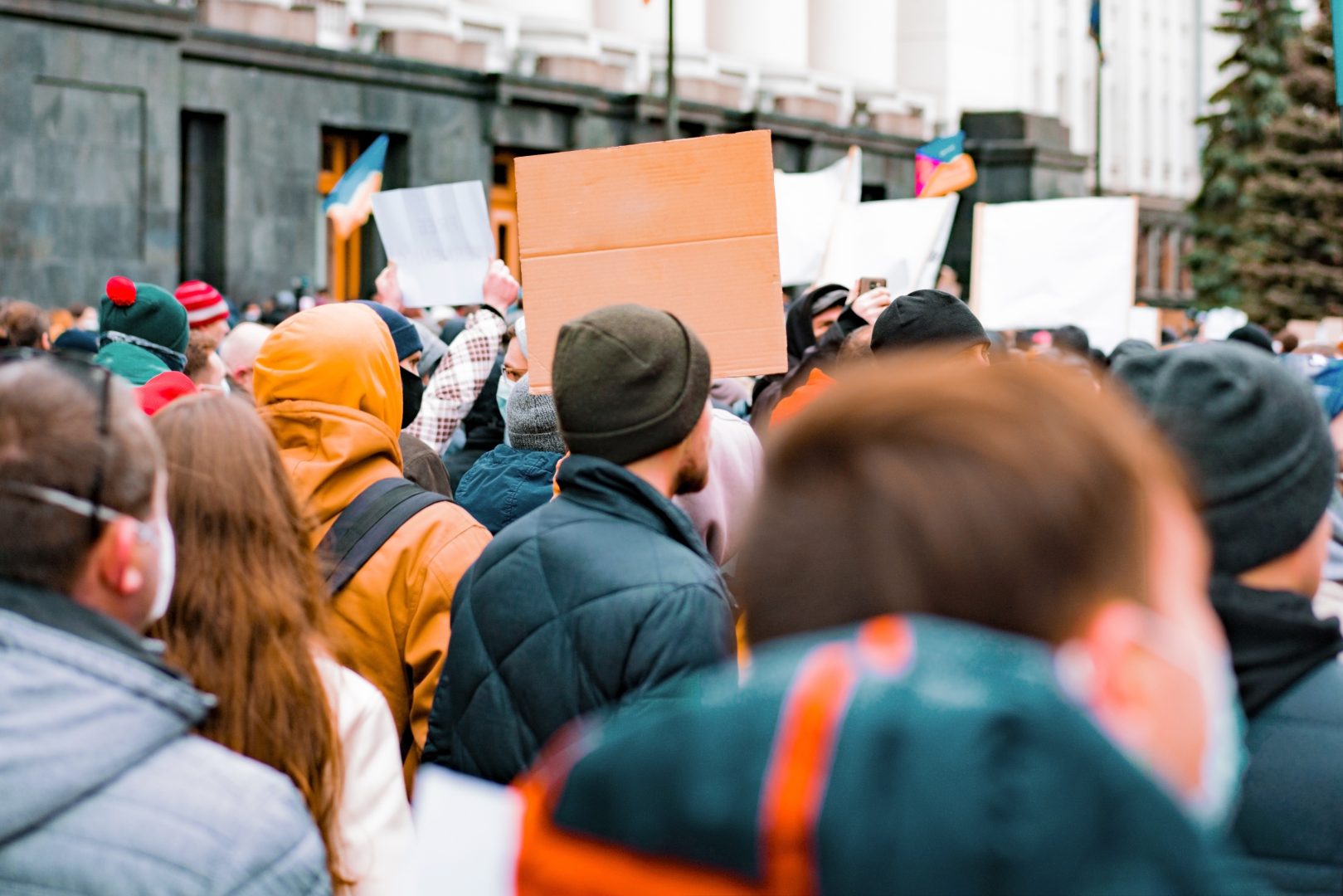“The principle of equality, which is at the core of democratic values, has very little meaning in a world where the oligarchy is taking over.”
– bell hooks
How can responsive philanthropy nurture equity and justice? The United States attempts to portray itself as an ideal democracy where representatives are elected by “the people.” But is it possible for a country to truly be democratic when it was founded on the systematic exclusion of Indigenous, Black and brown people? This country has a “democracy issue”, and responsive philanthropy is unfortunately the main answer to it.
But why are we more often reactionary, rather than proactive in our philanthropy? Why is philanthropy that empowers the disenfranchised most often a response to crisis, rather than the basis of a new, improved approach to resourcing organizations and initiatives? Why, after the crisis simmers down, can we not sit in the real discomfort that we feel, the tension between the world we live in and the one we aim to create? The answer, dear friends, is that democracy and traditional philanthropy must fulfill their promises for those who typically are only identified as “other.”
Philanthropy’s Response to Ferguson
On August 9, 2014, Michael Brown Jr., was murdered by a white police officer as he was walking to his grandmother’s home in Ferguson, Missouri. I found out about his death via social media. I watched as people uploaded images as events unfolded. Then I watched “democracy” stall. Michael’s body lay in the street in front of Canfield Green Apartments for 4.5 hours before it was removed. The dignity of being covered was given by a resident who provided a sheet, not by the authorities who were on site to “investigate.” His death was treated as if it was a minor administrative issue until the community made clear that it was not and insisted that it be treated like the deep, tragic loss that it was.
The Ferguson Uprising was a response to the status quo. In the uprising, we witnessed what happens when generations of residents are systematically excluded from justice, resources and yes – democracy. We also saw a flood of responsive philanthropy and goodwill statements. However, the Philanthropic Initiative for Racial Equity noted in “Mismatched: Philanthropy’s Response to the Call for Racial Justice”: “Even with the increased attention to the impact and importance of Black-led organizing, especially since the Ferguson uprising in 2014 and the growing focus on Black Lives Matter movement work, of all funding directed toward Black communities, the percentage awarded for grassroots organizing in 2015-2018 never exceeded 2 percent.”
Now, 10 years after the murder of Michael Brown Jr., we see a walking back of the promise of responsive philanthropy and goodwill statements, even as efforts to advance anti-racist systems change come under fire. Local and national peer organizations dedicated to creating a new, more equitable society are being told by the philanthropic community that priorities have shifted, and their work is no longer aligned. In short, social justice and equity are no longer trendy, and diversity, equity and inclusion (DEI) is now being used as a slur.
In the face of growing white supremacist, fascist and authoritarian movements, the philanthropic community seems to be running scared. Now, more than ever, we need it to boldly step forward. The way to restore democratic movements is not only funding anti-racist systems change organizations and initiatives, but also providing long-term commitments to grassroots organizing.
Centering Community Grantmaking
We used the phrase “Ferguson is everywhere” during the uprising. This was not just a reference to the rage felt in the wake of Michael’s murder, but the understanding that the foundation of our democracy is flawed. Broken societies built on exclusive social contracts aren’t easily fixed, nor are they stable.
Forward Through Ferguson (FTF) was created to carry on the legacy of the Ferguson uprising and to ensure that the 189 calls to action outlined by the Ferguson Commission are never forgotten. Since we were founded, responsive philanthropy has been essential in supporting our work promoting justice for all, youth at the center, opportunities to thrive and racial equity. At FTF, we advance racial healing and justice by addressing the funding disparities that Black and brown-led organizations face compared to their white counterparts.
The Ferguson Commission report called for the creation of a 25-year endowed and managed Racial Equity Fund to support organizations and initiatives that promote racial healing and justice. For the St. Louis Regional Racial Healing + Justice Fund (RH + JF), which was the pilot program of the Racial Equity Fund, FTF served as project manager while the Deaconess Foundation served as the fiscal administrator. The RH + JF was managed by a community governance board composed of between 9 to 15 Black and brown residents from across the St. Louis region. Across 3 RH + JF cycles, the community governance board distributed over $1.3 million to Black- and brown-led initiatives in areas like education, arts, racial justice, maternal health, youth mentorship, urban farming, holistic wellness and general capacity building.
Those involved with the RH+JF were firmly committed to the kind of proactive and forward-thinking social justice grantmaking that community residents have long sought from philanthropic partners. As the national multiracial nonprofit organization Resource Generation states, “social justice philanthropy focuses on the root causes of social, racial, economic and environmental injustices.” Within a democracy, philanthropic organizations have a unique opportunity to support initiatives that strengthen civic engagement, protect democratic values and promote social justice. The RH + JF evaluative process will end in September with a presentation of what has been learned.
However, one thing that remains uncertain is whether we can secure long-term partners and resources to create an endowed, perpetual fund. This has been a question that has long hovered over the process. At its inception, financial partners and resources for the RH + JF were scarce. Now, at the completion of the RH + JF pilot, we are still seeking investors willing to join us in this generationally impactful work.
By investing in the Racial Healing + Justice Fund, philanthropic organizations can support the transformative work being done by Forward Through Ferguson and contribute to building a more equitable and just society. We believe the Fund serves as a model for responsive philanthropy that prioritizes the needs of marginalized communities while addressing systemic barriers that perpetuate racial disparities.
The Funding Disparities that Weigh Down Black- and Brown-led Organizations
Despite the important work being done by FTF and other Black- and brown-led organizations, there exists a significant disparity in the amount of funding we receive compared to our white-led counterparts. Studies have shown that philanthropic dollars are disproportionately allocated to organizations led by white individuals, while Black- and brown-led organizations struggle to secure the resources they need to sustain their work.
Recent local fundraising data illustrates that point too clearly. In 2022, the local Give STL Day initiative raised $4.053 million for local nonprofits spanning 12 categories, including human services, animal and health focused organizations. Less than 2% of the funds raised went to Black-led and Black-benefiting organizations. Results remained similar in 2023, which led the St. Louis Community Foundation to conduct focus groups and address the funding disparities experienced by Black-led and Black-serving organizations.
Of course, communities are not standing still but mobilizing to shift practices. In 2018, Young, Black & Giving Back Institute Founder Ebonie Johnson Cooper created Give 8/28 Day – a giving day focused on and dedicated to grassroots, Black-led and Black-serving nonprofits. In 2023, this national day of giving raised $220,000 to support Black-led and Black-serving nonprofits. Yet we cannot do it alone. We know that it is possible to focus on addressing funding gaps experienced by Black-led and serving organizations and that we need to continue pressing for data that can evaluate and inform such efforts, both locally and nationally.
This funding disparity reflects broader systemic issues of inequity and funding gap and supports the transformative work being done by organizations like Forward Through Ferguson. Addressing the disparities in funding for Black- and brown-led organizations is crucial for advancing equity and social justice. Philanthropic organizations must actively work to dismantle systemic barriers and biases that hinder access to resources and support for Black- and brown-led organizations. By centering DEI in their grantmaking practices, philanthropy can help create a more level playing field and amplify the impact of organizations working toward racial healing and justice.
A Crucial Time for Resourcing – and Democracy
Moving forward, it is imperative that philanthropic organizations embrace responsive philanthropy as a guiding principle in their work. By remaining attuned to evolving community needs, fostering collaboration and partnership, and prioritizing equity and justice in their grantmaking practices, philanthropy can play a pivotal role in nurturing a more inclusive, equitable, and participatory democracy.
In conclusion, responsive philanthropy in democracy is a powerful force for positive change, particularly in addressing racial disparities and advancing social justice. By supporting initiatives that empower marginalized communities, amplify diverse voices, and promote equity and inclusion, philanthropic organizations can contribute to building a more just and equitable society for all. Through strategic partnerships, capacity-building efforts, and a commitment to amplifying marginalized voices, philanthropy can help bridge the funding gap for Black- and brown-led organizations and foster a more inclusive and equitable philanthropic sector.
At Forward Through Ferguson, we acknowledge that we often sit in discomfort between the future that we are working toward and the reality within which we exist. In the spirit of responsive philanthropy, let us continue to work together toward a future where all voices are heard, all communities are empowered, and all individuals have the opportunity to thrive and contribute to a more just and equitable society. We ask that the philanthropic community join us in sitting in discomfort until ALL can be comfortable.
Annissa G. McCaskill is the Executive Director of Forward Through Ferguson, where she is responsible for supporting staff in its work of centering racial equity in systemic systems change, building organizational stability, and advancing strategic leadership. She is a proud member of Alpha Kappa Alpha Sorority, a graduate of the HBCU Livingstone College, and has forged a career shattering barriers as the first African American to be both elected to serve as President of the M.P.A. Student’s Association and nominated for the prestigious Presidential Management Fellowship at Indiana State University, and the first African American to hold municipal positions in Chesterfield, MO; University City, MO; and Belleville, IL.
Jia Lian Yang (she/they), MDiv/MSW, is a storyteller, cultural worker, and facilitator. Born and raised in San Jose, California, she came to St. Louis in 2012 to pursue a Master of Social Work at Washington University in St. Louis and Master of Divinity at Eden Theological Seminary. They are the Director of Storytelling & Communications at Forward Through Ferguson, where they manage data storytelling initiatives such as #Transforming911 and craft narratives around grassroots efforts to advance Racial Equity.

More Responsive Philanthropy








